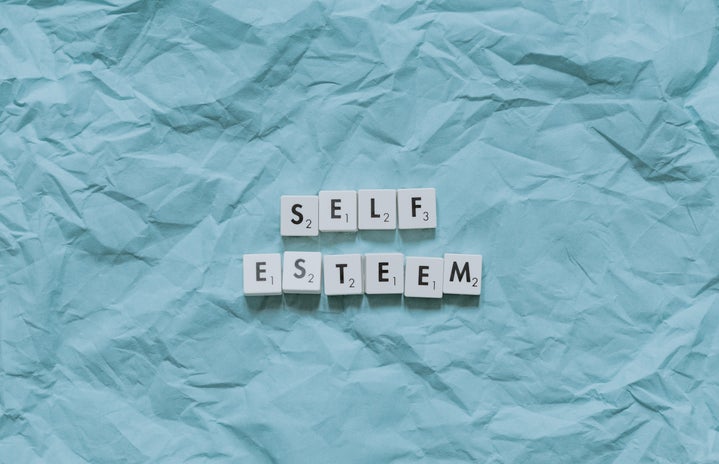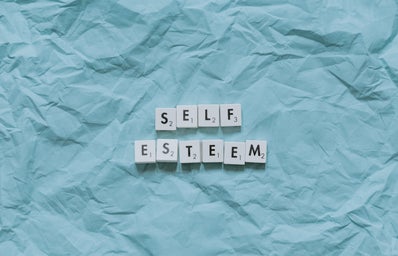Edited by: Kaavya Azad
Self-esteem is an individual’s subjective evaluation of their own worth.
A seemingly simple definition, yet one that is so hard to define objectively.
Too little is underconfident, introverted—this is largely romanticised.
Too much is overconfident, arrogant.
How do people traditionally define their worth?
The traditional outlook is attributed to looks, money, skill, external validation, and similar factors. Simply being “more” than someone else in any or all aspects of what society deems “skill” or “worthy” equates to being outright “better”. A prettier person is prettier. A richer person is richer. A fitter person is fitter. And now also objectively better.
Once defined, this implicitly also determines how much everyone else is “worth” to you.
Why is self-esteem such a prominent issue to most people?
Whether subconsciously or consciously, it stems from believing that your worth is subject to how much you or someone else validates certain aspects of life. Mainly because it’s a path with no return—a dogma, almost. One decides that they are inherently a certain way and nothing’s further ahead. Some arbitrary level of dogmatised self-worth now constrains your set upper limit of productivity and even your courage to give anything a shot.
Unfortunately, there are only a few options after that—acceptance of one’s self-defined “fate” with the growing need for avenues of comfort, and with it, growing resentment for the hand dealt to them.
The path one chooses here is just temporarily “comforting” and not healthy. These means of comfort only entail denial. One seeks solace by telling themselves that an objective fact doesn’t exist or doesn’t matter. This is all in hopes of momentarily increasing one’s self-worth, then eventually coming to terms with reality and blaming fate. This loop only continues and becomes narrower with time.
The other side of this arises when a person deems themself worthier than the rest, for the same reasons. One only does this because of the pseudo sense of power it comes with and the momentary comfort it entails.
When does your self-esteem come into play?
One’s self-esteem tends to affect aspects of decision making more than one thinks. One must not deny facts—someone being taller or weighing more is a fact despite one’s self-esteem. Pretending that it’s not, or more dangerously, pretending that traits and abilities are something “inherent” is not the way forward. A bigger problem rises; all other issues are now streamlined through this wall of predefined worth which cannot be changed. It becomes a bigger, more concerning problem than the earlier one—a potentially solvable issue. Now, it cannot be negotiated with, a dead end.
This extra barrier with no objective existence comes into play in any endeavour one has—all we can do in any avenue is make an attempt. Our greatest and only asset now is streamlined through this barrier.
What manifests as too much/too little self-esteem?
In a nutshell, it stems from our inhibitions. Various kinds of inhibitions often “feel” a lot different from each other. That works in our favour here.
Inhibitions make you feel like you’re not good enough, inferior, and often manifest low self-esteem. Situations where others are more skilled, where you’re in the minority, when you feel like you have to prove yourself— all of these situations come with a strange, common feeling.
The other side of these inhibitions that make you feel entitled and emotionally hateful often stem from deeming oneself too worthy. When someone you consider lesser tries to step up their game is when you suddenly stop being validated, these come with another strangely similar “feeling”.
When is your self-esteem healthy?
A healthy way to look at this is by keeping your self-esteem equal to your perception of anyone else’s worth, thereby defining the same “worth” for everyone else—a seemingly simplistic argument yet one with profound implications.
When one can “actively” believe this, they have the least amount of denial. It now gives sight to and points at the obvious solutions and promotes respect for oneself and everyone else too. This path acknowledges facts for what they are and solutions for what they should be. Not every explanation must now aim at raising one’s self-esteem. Since none of the pre-conditioned “worthy” traits affects one’s self-worth, this makes self-esteem irrelevant to one’s problems and solutions, which it objectively is. This removal of conditioning, more importantly, makes one realise that issues that matter for an individual are largely relative. One cannot be conditioned to excel by a certain predefined template to be deemed “worthy”.
Resisting manipulation, sticking to what makes sense to you, being less regretful, having a healthy response to criticism and increased courage are just a few of the by-products of interpreting self-esteem the right way.
How would you map something like this out in the real world?
The obvious first step is to acknowledge when these inhibitions spring up. One could list behavioural tendencies of people with troubled self-esteem. Still, these behavioural tendencies arise first as these inhibitions and then further manifest themselves.
Acknowledge these inhibitions when they spring up. Doing so is possible because inhibitions obviously “feel” abnormal, making them easily acknowledgeable. After this, you have to rationalise by accounting for this feeling and acknowledging if these inhibitions spring up. It sounds exhausting but once identified, re-identifying these inhibitions get easier, and so does phasing them out and rationalising further. Further motivation sets in—one’s healthy self-esteem has grown such that, eventually, not phasing out these inhibitions seems wrong. Sometimes, it might seem stupid, even—because ultimately, one realises that these were pseudo-threats to one’s existence all along with no objective fact. Acknowledgements, rationality and then baby steps are the only way forward in mapping out a path that works for you.
My experience:
This is my personal experience, which may or may not work for you. As someone who’s been previously diagnosed with obsessive negative thinking, depression, and for the longest time, had non-existent self-esteem, which wasn’t self-articulated, I have strong opinions on these lines. Honestly, issues on these lines can feel like life imprisonment because your epistemology, courage to act or even to think is corrupted, and there’s genuinely no way ahead unless it is first acknowledged.
After getting help, reading a fair bit, introspecting, and talking to friends about it, one comes a long way. I honestly cannot relate to the person I used to be.
However, that’s not all there is because my default and natural state is the old me. I’ve worked hard not to get back to that, but there are still hard times where the earlier mindset sets in and it all seems like a big waste. After such a lapse, the only thing one can do is take a step back and acknowledge—very specifically, the lapse that took place and the implicit assumptions it caused you to make.
There is a bright light at the end of this tunnel—definitely one worth traversing through.


